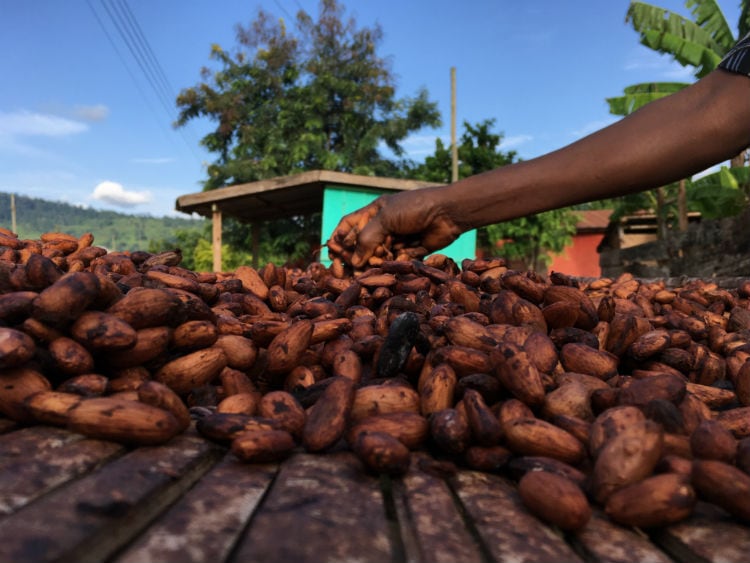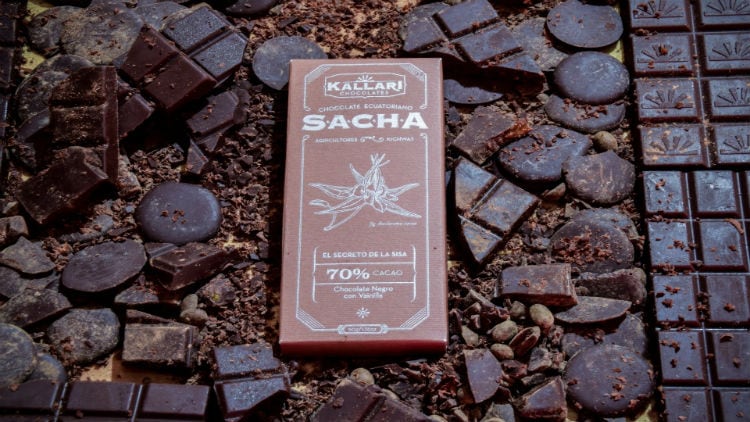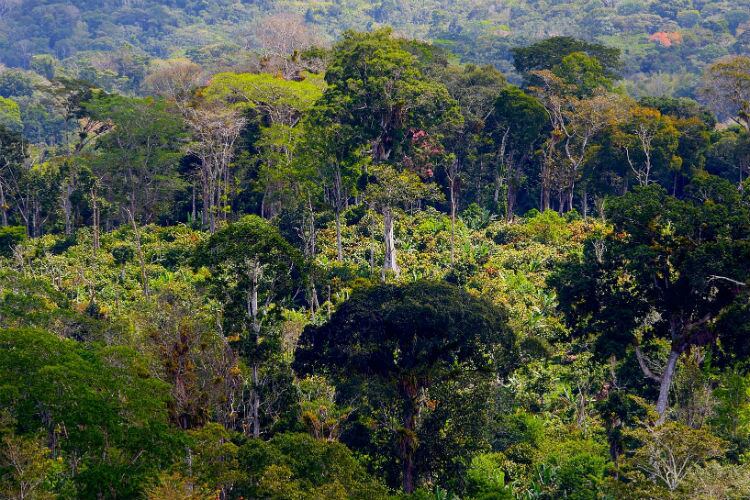Cargill claims to be becoming more transparent in its cocoa supply after achieving key milestones in the past 12 months.
Its recently released Cocoa & Chocolate Sustainability Report highlights the work in five origin countries where the company sources cocoa—Brazil, Cameroon, Côte d’Ivoire, Ghana, Indonesia – in areas such as supply chain traceability, use of technology to combat deforestation and empowering cocoa farmers’ lives.
Cargill is also a member of the Living Income Community of Practice, which has developed living income benchmarks for cocoa farmers in Côte d'Ivoire and Ghana.
“This sustainability report highlights how we are taking action on a range of issues across the cocoa sector, while maintaining a farmer-first approach. It is vital that everything we do creates lasting benefits for cocoa farmers, their families and communities, and empowers them to own their futures and achieve success as small businesses while protecting our planet,” said Harold Poelma, president of Cargill’s cocoa & chocolate business.
Reacting to the report, Oliver Nieburg, sustainability analyst for Lumina Intelligence, said it is a marked improvement in transparency and also in the understanding of what improving livelihoods actually means.
Scalable solutions
The company said it is focused on achieving a more transparent supply chain and implementing scalable solutions through technology and evidence-based approaches. Cargill’s recent actions have focused on building the capacity of local farmers, improving traceability in the supply chain, increasing access to training and educational resources for cocoa households, professionalizing farming and protecting natural resources.
“It is our belief that the journey towards sustainable business practices is far greater than the actions or interests of any one company. By partnering up with other organizations and playing to our individual strengths we can achieve fundamental and lasting transformation, together,” Poelma added.
Cargill says its key milestones over the past year include:
- Providing Good Agricultural Practices (GAPs) training and coaching to over 200,000 cocoa farmers worldwide. In Côte d’Ivoire, Cargill has seen GAP adoption rates double (from 14% to 28%), with farmers able to boost their productivity and manage their farms more sustainably.
- GPS polygon mapping of more than 110,000 farmers and the assessment of 188,065 hectares of forest within Cargill’s direct cocoa supply chain (in partnership with Global Forest Watch). This work establishes a baseline identifying where the cocoa comes from, which areas may be at risk of deforestation and how to mitigate this risk through specific interventions.
- Completed full needs assessments in 137 new communities in Côte d’Ivoire and Ghana. As a result, these communities are currently developing Community Action Plans (CAPs), which enable their leaders to evaluate local needs, identify available resources or areas for development, and define their path forward.
Cargill claims the integration of technology across its supply chain ‘also drives greater trust and transparency from cocoa bean to chocolate bar’. Data from the deployment of GPS polygon mapping and electronic bean tracking solutions inform how the company designs and deploys its sustainability programs, in turn helping customers deliver on consumer demands for ethically sourced products.
“Cargill is among the first of the major cocoa and chocolate companies to talk about a living income for farmers. It has not outright committed to providing a living income, but says it is an ‘an important aspect of farmer livelihoods’,” Nieburg told ConfectioneryNews.
“Working towards a living income is big step to quantifying its impact on farmer livelihoods that goes beyond simply reaching 1m and generically ‘strengthening the socio-economic resilience’ of participating farmers."
The report highlights progress made on the company’s five Sustainability Goals, aligned to the UN Sustainability Development Goals and adopted by Cargill Cocoa & Chocolate in 2017. These sustainability goals are part of the Cargill Cocoa Promise: the company’s corporate commitment to improving the lives of cocoa farmers and their communities.
“A fuller commitment towards living income has potential to drive sustainable development in cocoa producing areas, but there is much to do, particularly with such low adoption rates for Cargill’s training initiatives (28% GAP compliance) and 51% of volumes not yet under the Cargill Cocoa Promise," said Nieburg.
“The company says the average farmer earnings participating in the Cargill Cocoa Promise in Cote d’Ivoire is $3,314 per year/$276 a month.
“This is higher than the average income for cocoa growing households of $2,346 per year/ $196 per month, according to study by KIT Royal Tropical Institute’s recent study, but is still far below its reference for a living income of $5,448/$454 per month in rural Côte d'Ivoire (Living Income Community of Practice measure)," he said.
Nieburg also made the observation that in Côte d’Ivoire alone there were 2,000 cases of child labor unearthed in Cargill's supply chain in 2017/18.
"Until that sizeable gap is bridged, it is likely Cargill will continue to unearth more child labour in its supply chain," he said.
When conctacted by ConfectioneryNews, Cargill said that the recent cases of child labor discovered in Côte d’Ivoire are under remediation and are being addressed or tackled. More information on its policy can be found in the company's interactive report: https://www.cargill.com/static/cocoa-sustainability/#page=8
- This article was amended 6/5/19 15:30 to clarify Cargill's position on child labor cases in Côte d’Ivoire.




